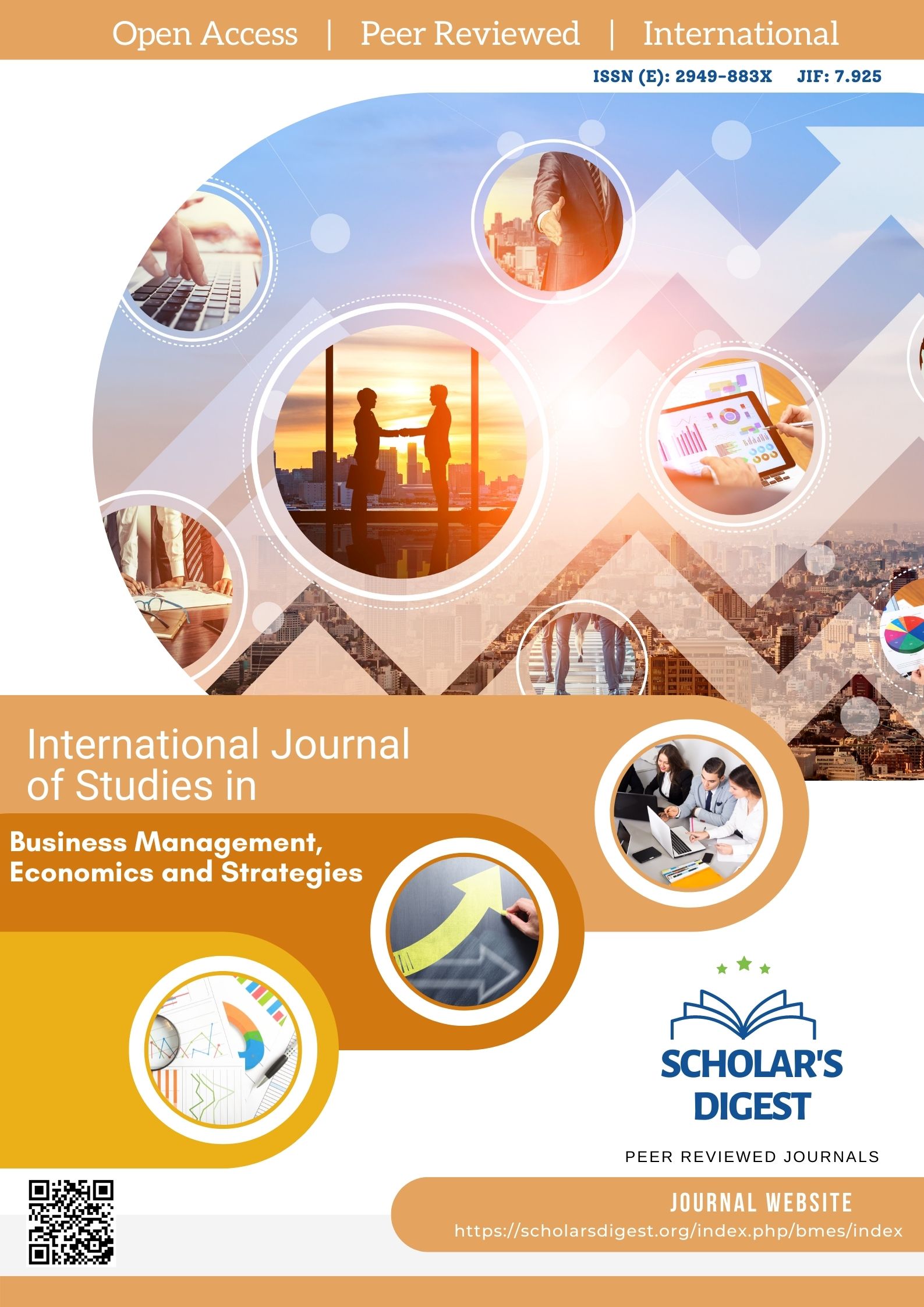THE IMPACT OF STRATEGIC INTELLIGENCE ON COMPETITIVE VIGILANCE-AN APPLIED STUDY ON FOOD PRODUCTION COMPANIES IN THE REPUBLIC OF IRAQ
Keywords:
Strategic Intelligence, Competitive Vigilance, Food production companies in the Republic of Iraq.Abstract
Purpose: This study explores the relationship between Strategic Intelligence and competitive vigilance in the context of food production companies in Iraq. The objectives were to examine the impact of Strategic Intelligence dimensions (foresight, vision, and systematic thinking) on competitive vigilance and provide recommendations for enhancing competitive vigilance based on the findings. The study employed descriptive statistics and regression analysis to analyze the data collected from a sample of food production companies. The results revealed that foresight and vision had a significant positive impact on competitive vigilance. Companies that exhibited a higher level of foresight and vision demonstrated enhanced competitive vigilance, enabling them to proactively address market challenges. However, the dimension of systematic thinking did not show a significant impact on competitive vigilance. Based on these findings, the study recommends that food production companies in Iraq prioritize the development of foresight and vision within their Strategic Intelligence practices. Strengthening competitive vigilance through robust monitoring systems and fostering a culture of Strategic Intelligence are also crucial. Additionally, incorporating systematic thinking as part of the Strategic Intelligence framework should be encouraged, even though it did not show a significant impact in this study. These recommendations aim to assist food production companies in Iraq in enhancing their competitive advantage and effectively responding to market challenges. Future research should explore other industries, conduct longitudinal studies, and investigate mediating and moderating factors to further advance our understanding of the relationship between Strategic Intelligence and competitive vigilance. Design/methodology/approach: Depending on the nature of the subject of the study and the information that must be obtained to reveal the effect of Strategic Intelligence (as an independent variable) on Competitive Vigilance (as dependent variable), through the questions that the study seeks to answer, this study relied on the descriptive analytical approach, which is "a way to describe and measure the phenomenon studied by collecting, classifying, analyzing the problem A descriptive study design was used for the current study. The descriptive approach also means that type of research that is carried out by interrogating the members of the study community or a sample of them in order to describe the phenomenon studied in terms of its nature and degree of existence. According to (Sekaran, & Bougie, 2010), the descriptive study design is not experimental in that it deals with relationships between variables in a natural rather than a laboratory setting. Circumstances and events have already occurred, and the researcher can identify the variables that are most relevant to the analysis of existing relationships. In descriptive design, the hypothesis is also formulated and tested, and generalizations of the results are reached through inductive reasoning. Descriptive design also uses randomization methods so that error can be estimated when population characteristics are inferred from sample observations and variables and procedures are described (Cooper, Schindler, 2013).








